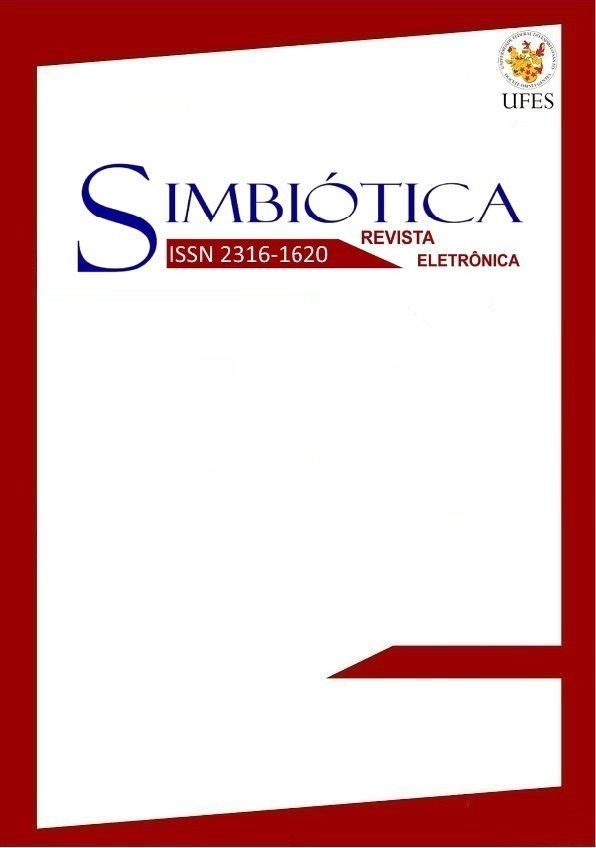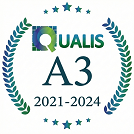O pensamento de máquinas em Ada Lovelace
The machine thinking in Ada Lovelace
DOI:
https://doi.org/10.47456/simbitica.v10i1.38046Keywords:
Ada Lovelace, pensamento, máquina, filosofia da menteAbstract
To construct machines that simulate human actions has a wide expression on Modernity with the increasing interest to understand how people work through construction of the automaton. Into this context the problem of thinking of machines is located in Ada Lovelace, a mathematician in nineteenth century, in England. Then the objective of this paper is to elucidate Ada’s answer regarding the problem if machines are able to think. To Ada, machines do not think. Since it, we try to demonstrate that the Turing’s argument against Ada do not consider fundamental elements from dualism of substances paradigm. This Turing’s disregard points to a significant technological change and human perspective into a period of one century that separates him and Ada.
References
ABBATE, Janet (2003), “Women and Gender in the History of Computer”. IEEE Annals of the History of Computing, pp.1-5 [Consult. 10-01-2022]. Disponível em https://www.researchgate.net/publication/3330916_Women_and_Gender_in_the_History_of_Computing
BRENTANO, Franz (1995), Descriptive Psychology. New York, Routledge.
BRITO, Evandro Oliveira de (2012), “A descrição da atividade intencional da consciência na obra Psicologia descritiva de Franz Brentano”. Kínesis, v. 4, n.7, pp.174-187 [Consult. 15-02-2022]. Disponível em https://www.marilia.unesp.br/Home/RevistasEletronicas/Kinesis/evandrobrito174-187.pdf
BROMLEY, Allan G. (1990), “Difference and Analytical Engines”, in W. Aspray (Ed), Computing Before Computers. Iowa State University Press, pp.59-98.
Cartas entre Lovelace e Morgan, 1840 a 1842 [Consult. 30-09-2019]. Disponíveis no site do Clay Mathematics Institute: http://claymath.org/content/correspondence-de-morgan-0
CHALMERS, David J. O Enigma da Experiência Consciente [Consult. 07-03-2022]. Disponível em https://criticanarede.com/men_chalmers.html?fbclid=IwAR14v1VWSga3j1u8yvNnE5rpNY_sRvbCcD0KQD59CttR1Utk-CMZ4gND1kQ#footer
DESCARTES, René (1962), Meditações. Obra Escolhida. São Paulo, Difusão Europeia do Livro, pp.105-197.
Documentário A História dos Autômatos (2013) [Consult. 26-02-2022]. Disponível em: https://www.youtube.com/watch?v=gdSRAKRuZsE&feature=youtu.be
GÜRER, Denise (2002), “Pioneering Women in Computer Science”. ACM SIGCSE Bulletin, v. 34, n. 2, pp.116-120 [Consult. 05-01-2022]. Disponível em https://www.vofoundation.org/faith-and-science/pioneering-women-in-computer-science-sr-mary-kenneth-keller/
LOCKE, John (2007), Ensaios políticos. São Paulo, Martins Fontes.
LOVELACE, Augusta Ada (1843), “Sketch of the Analytical Engine invented by Charles Babbage”. Tradução originalmente publicada na Scientific Memoirs, 3, pp. 666-731 [Consult. 29-01-2022] . Disponível em http://livros01.livrosgratis.com.br/ps000135.pdf
LOVELACE, Augusta Ada. Carta de 6 de fevereiro de 1841 ao Mr. Morgan [Consult. 30-01-2022]. Disponível em http://claymath.org/content/correspondence-de-morgan-0
McCULLOCH, Warren S.; PITTS, Walter H (1943), “A Logical Calculus of the Ideas Immanent in Nervous System”. Bulletin of Mathematical Biophysics, v. 5, pp. 115-133 [Consult. 07-01-2022]. Disponível em https://link.springer.com/article/10.1007/BF02478259
MENABREA, Luigi Frederico (1842), “Sketch of the Analytical Engine invented by Charles Babbage”. Original publicado na Bibliothèque Universelle de Genève, n. 82 [Consult. 28-01-2022]. Disponível em http://psychclassics.yorku.ca/Lovelace/lovelace.htm#A
PLANT, Sadie (1999), Mulher Digital: o feminismo e as novas tecnologias. Rio de Janeiro, Rosa dos Tempos.
RUSSELL, Stuart; NORVING, Peter (2013), Inteligência Artificial, 3ed. Rio de Janeiro, Elsevier.
SCHINZEL, Britta, (2015), “Ada: poet of computing”, in H. Werthner e F. Harmelen (Orgs), Informatics in the Future. Vienna, pp. 90-109.
SEARLE, John R. (1980), “Minds, Brains and Programms”. Behavioral and Brain Sciences, v. 3, n. 3, pp. 417-457 [Consult. 07-03-2022]. Disponível em http://cogprints.org/7150/1/10.1.1.83.5248.pdf
SHWARTZ, Juliana; CASAGRANDE, Lindamir Salete; LESZCZYNSKI, Sonia Ana C.; CARVALHO, Marília G. (2006), “Mulheres na Informática: quais foram as pioneiras?” Cadernos Pagu, n. 27, pp. 255-278 [Consult. 28-01-2022]. Disponível em http://www.scielo.br/pdf/cpa/n27/32144.pdf
TOOLE, Betty Alexandra (1996), Ada Byron, “Lady Lovelace, An Analyst and Metaphysician”. IEEE Annals of the History of Computing, v. 18, n. 3, pp. 4-12 [Consult. 12-01-2022]. Disponível em https://www.researchgate.net/publication/3330558_Ada_Byron_Lady_Lovelace_an_analyst_and_metaphysician
TURING, Allan (1950), “Computing Machinery and Intelligence”, Mind, v. 59, n. 236, pp. 433-460 [Consult. 05-01-2022]. Disponível em http://www.jstor.org/stable/2251299
Downloads
Published
Issue
Section
License
Copyright (c) 2023 Patricia Neumann

This work is licensed under a Creative Commons Attribution-NonCommercial 4.0 International License.
Autores que publicam nesta revista concordam com os seguintes termos:
a. Autores mantém os direitos autorais e concedem à revista o direito de primeira publicação, com o trabalho simultaneamente licenciado sob a Creative Commons - Atribuição-NãoComercial 4.0 Internacional.
b. Compartilhar - copiar e distribuir o material em qualquer meio ou formato.
Adaptar - remix, transformar e construir sobre o material para qualquer finalidade, inclusive comercial.
c. Autores têm autorização para assumir contratos adicionais separadamente, para distribuição não-exclusiva da versão do trabalho publicada nesta revista (ex.: publicar em repositório institucional ou como capítulo de livro), com reconhecimento de autoria e publicação inicial nesta revista.
d. Autores têm permissão e são estimulados a publicar e distribuir seu trabalho online (ex.: em repositórios institucionais ou na sua página pessoal) a qualquer ponto antes ou durante o processo editorial, já que isso pode gerar alterações produtivas, bem como aumentar o impacto e a citação do trabalho publicado (Veja O Efeito do Acesso Livre).
Authors who publish in this journal agree to the following terms:
a. Authors retain the copyright and grant the magazine the right of first publication, with work simultaneously licensed under the CCreative Commons - Atribuição-NãoComercial 4.0 Internacional.
b. Share - copy and distribute the material in any medium or format.
Adapt - remix, transform and build on the material for any purpose, including commercial.
c. Authors are authorized to take additional contracts separately, for non-exclusive distribution of the version of the work published in this journal (eg, publish in institutional repository or as a book chapter), with acknowledgment of authorship and initial publication in this journal.
d. Authors are allowed and encouraged to publish and distribute their work online (eg.: in institutional repositories or on their personal page) at any point before or during the editorial process, as this can generate productive changes as well as increase the impact and the citation of the published work (See The Effect of Free Access).












